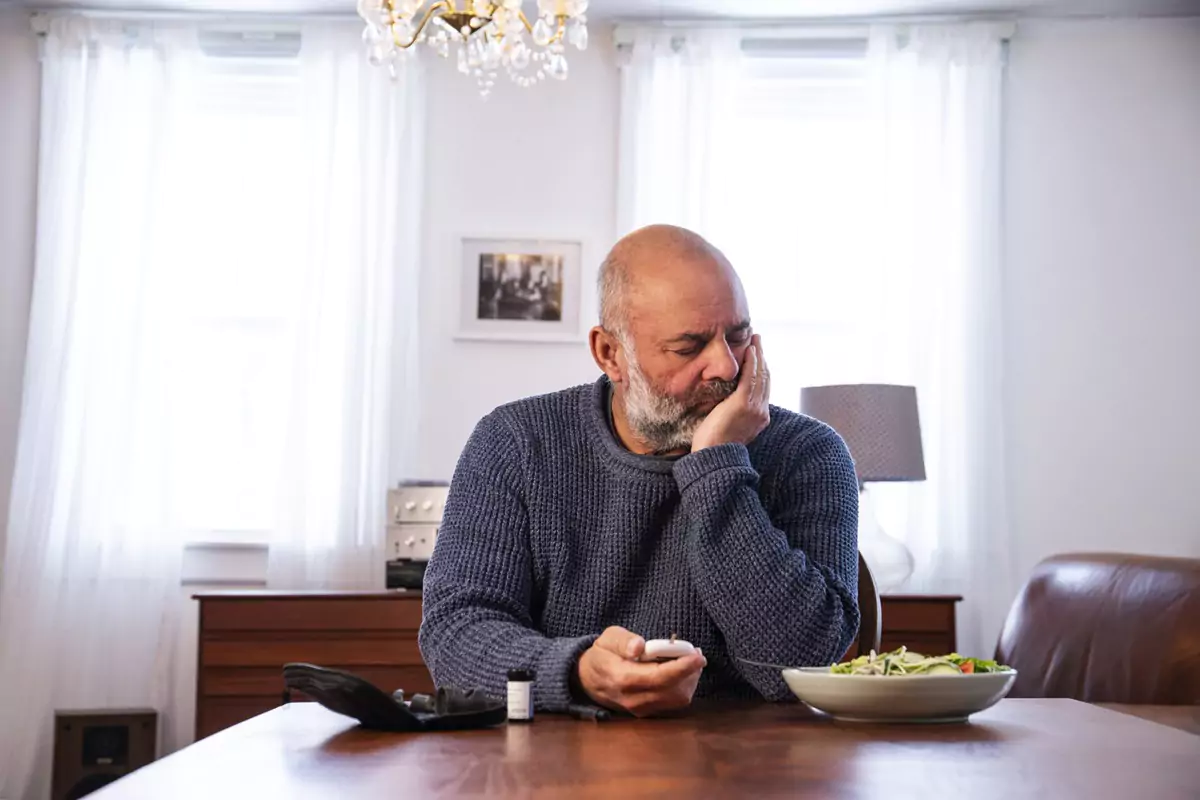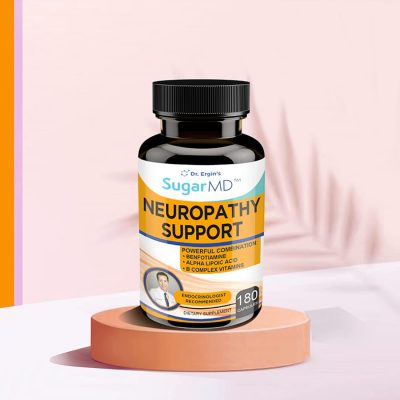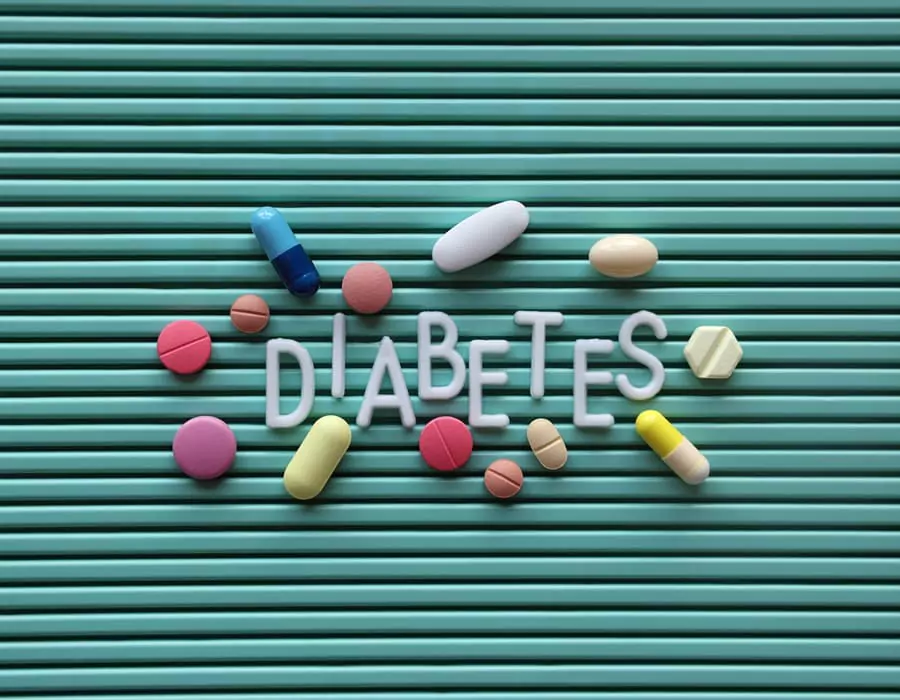
UP TO 40% OFF SITEWIDE






Type 1 Diabetes and Aging: A Holistic Approach to Managing Health and Well-Being


Table of Contents
- Mental Health Considerations
- Technology Adaptation
- Diet and Exercise
- Medication Adjustments
- Monitoring and Management
- SugarMD DiaVitamin and Neuropathy Support
- Family Involvement
- Advocacy During Healthcare Visits
- Support in Cognitive Decline
- Consideration of Other Chronic Conditions
- Importance of Personalized Treatment Plans
- Utilizing Technology for Integrated Care
- Financial Planning
- Consideration of Long-Term Care Needs
- Personalized Care Plans
- Regular Monitoring and Adjustments
- Community Support
- Fitness Classes
- Meal Programs
- Support Groups
- Professional Assistance
- Role of Professional Caregivers
- Legal Planning
- Healthcare Proxy
- Power of Attorney
- Cultural Sensitivity in Managing Type 1 Diabetes
- Communication and Respect
- Integrating Cultural Practices
- Joining Clinical Trials for Type 1 Diabetes
- Why Participate?
- Contributing to the Future
- Conclusion
- About The Author
Aging is a natural process that brings about changes in every aspect of life. But what happens when aging intertwines with a chronic condition like Type 1 Diabetes (T1D)? The journey of growing older with T1D is filled with unique challenges, complexities and opportunities. It's a path that requires careful navigation, a blend of medical advancements, personal resilience and community support.
Whether you or a loved one is facing this journey, understanding the multifaceted aspects of aging with T1D is crucial. From mental health to technology adaptation, from diet and exercise to legal planning, this comprehensive guide unravels the intricacies of aging with T1D.
It's more than just a medical condition; it's a way of life that demands continuous learning and adaptation. Dive into this guide and discover how to embrace aging with T1D with confidence and grace.
Mental Health Considerations
Aging is a natural process that brings about many changes, both physically and mentally. For individuals with Type 1 Diabetes (T1D) these changes can be even more pronounced, leading to feelings of isolation or depression. The emotional toll of managing a chronic condition like T1D can be overwhelming, particularly as one grows older and faces additional health challenges.
Mental health support is not just an option; it's a vital component in maintaining overall well-being. Professional counseling can provide a safe space to explore feelings, develop coping strategies and build resilience. Support groups, whether in-person or online, can foster a sense of community and connection with others who understand the unique challenges of living with T1D. Family and friends also play a crucial role in mental well-being.
Encouraging open communication, offering support and understanding the emotional impact of T1D can make a significant difference. Activities that promote relaxation and enjoyment, hobbies and social engagements can also contribute to a positive mental state.
Technology Adaptation
The world of diabetes management has seen remarkable advancements in technology. Continuous glucose monitors (CGMs), advanced insulin pumps and other innovative tools have transformed the way individuals with T1D manage their condition. These technologies offer real-time insights, greater control and personalized treatment plans. However, for seniors, adapting to new technology can be challenging.
The learning curve may seem steep, especially for those who are not tech-savvy. Additional education and support are often required to ensure that seniors can effectively utilize these tools.
Healthcare providers, diabetes educators and technology manufacturers often offer training and resources to assist in this adaptation. Family members can also play a supportive role by learning about the technology and assisting with its use.
The investment in time and effort to embrace new technology is worthwhile. It leads to more accurate monitoring, better decision-making and ultimately, improved quality of life for those aging with T1D.
Diet and Exercise
As we age, our metabolism slows down and body composition changes. These changes can affect how the body processes food and utilizes energy, making adjustments in diet and exercise routines necessary. For individuals with T1D these adjustments are even more critical. A registered dietitian specializing in diabetes can provide personalized recommendations based on individual needs, preferences and medical history.
This personalized approach ensures that the diet supports optimal blood sugar control while also meeting nutritional needs. Exercise is equally important. Regular, gentle exercise like walking, swimming, or yoga can have substantial benefits for both physical and mental health. It helps in maintaining a healthy weight, improving insulin sensitivity and boosting mood. However, it's essential to recognize that exercise needs may change with age.
What worked in younger years may not be suitable in later life. Consulting with healthcare providers, physical therapists, or fitness professionals who understand the unique needs of those with T1D can help in developing a safe and effective exercise routine.
Medication Adjustments
Kidneys play a vital role in filtering and eliminating waste products, including medications. As people age, kidney function may decline, affecting how the body processes certain drugs. This can lead to a buildup of medication in the system, potentially causing adverse effects or reducing efficacy.
In the context of T1D, this may mean that insulin and other diabetes medications need to be adjusted to align with the body's changing needs.
Regular reviews with a healthcare provider, such as an endocrinologist or a diabetes care specialist, can ensure that all medications are tailored to the individual's current health status.
Monitoring and Management
Continuous monitoring of blood glucose levels, kidney function and other vital signs is essential in managing T1D effectively, especially in older adults. Regular blood tests and medical check-ups can provide valuable insights into how the body is responding to medications and whether adjustments are needed.
Healthcare providers may also consider other factors, such as the presence of additional chronic conditions, lifestyle changes, or new symptoms, when determining the need for medication adjustments. Collaborative care involving pharmacists, dietitians and other healthcare professionals can provide a holistic approach to medication management.
SugarMD DiaVitamin and Neuropathy Support
SugarMD Vitamin and SugarMD Neuropathy Support 180 Capsules are dietary supplements designed to support the health of individuals with diabetes. The DiaVitamin formula is formulated to support healthy glucose metabolism and provide essential vitamins and minerals including High potency B-vitamins, Antioxidant Vitamins A, C, E,Thiamine and Selenium, while the Neuropathy Support formula is designed to help alleviate nerve pain and support nerve health.

Both formulas are made with high-quality ingredients and are carefully crafted to meet the unique needs of individuals with diabetes. Support into your daily regimen, you can help support overall health and wellness, especially for those with diabetes.
Family Involvement
Family involvement in the care plan for individuals with T1D is not only beneficial but often essential, especially as age-related challenges arise. Family members can assist in daily management by helping with tasks such as monitoring blood glucose levels, administering insulin injections and managing dietary needs. They can also provide emotional support and encouragement, fostering a positive environment for managing T1D.
Advocacy During Healthcare Visits
Family members can serve as advocates during healthcare visits, ensuring that the individual's needs and concerns are effectively communicated to healthcare providers. They can assist in understanding medical instructions, asking relevant questions and making informed decisions about treatment options.
Support in Cognitive Decline
Family support becomes particularly crucial if cognitive decline becomes a factor. Dementia or other cognitive impairments can make self-management of T1D challenging. Family members can provide essential support in these situations, ensuring that medications are taken correctly, appointments are kept and overall care is maintained.
Involving family members in the care plan goes beyond immediate assistance. It's about building a supportive network that understands the unique challenges of aging with T1D. Regular communication, education and collaboration with healthcare providers can empower family members to provide effective support.
Family involvement also extends to legal and financial planning, ensuring that the individual's wishes and needs are met as they age. This includes considerations for power of attorney, living wills and other legal documents that may be necessary in the future.
Consideration of Other Chronic Conditions
Many people with Type 1 Diabetes (T1D) may develop other chronic conditions as they age. These conditions can range from cardiovascular diseases, kidney disorders, vision problems, to mental health issues.
The presence of multiple chronic conditions, often referred to as comorbidities, can complicate the management of T1D and require a more nuanced approach to care. Coordinating care among various healthcare providers is crucial to ensure that treatments for different conditions are compatible.
This involves regular communication between primary care physicians, endocrinologists, cardiologists, nephrologists and other specialists. The goal is to create a cohesive treatment plan that takes into account the unique interactions between T1D and other chronic conditions.
For example, certain medications prescribed for heart disease may affect blood sugar levels, requiring adjustments in insulin therapy. Regular consultations and check-ups with all involved healthcare providers can help in monitoring and managing these interactions.
Importance of Personalized Treatment Plans
Personalized treatment plans that consider the individual's overall health, lifestyle and specific chronic conditions are essential. This includes dietary adjustments, exercise routines, medication schedules and mental health support. Education and counseling on how to manage multiple chronic conditions can empower individuals to take an active role in their healthcare.
Utilizing Technology for Integrated Care
Technology can play a vital role in integrated care. Electronic health records, telemedicine consultations and digital monitoring tools can facilitate seamless communication between healthcare providers. This ensures that all members of the healthcare team have access to up-to-date information, leading to more informed decisions and better patient outcomes.
Financial Planning
Medical expenses can be a significant concern for seniors, especially those managing T1D and other chronic conditions. The costs associated with medications, medical devices, regular check-ups and specialized care can quickly add up. Working with a financial planner who understands the unique needs of those with T1D can help in preparing for future healthcare costs. This includes creating a budget that accounts for ongoing medical expenses, potential changes in insurance coverage and unexpected healthcare needs.
A financial planner with experience in healthcare can guide individuals in exploring various insurance options, government assistance programs and financial products designed to support healthcare expenses. This personalized approach ensures that financial planning aligns with medical needs and long-term health goals.
Consideration of Long-Term Care Needs
Planning for potential long-term care needs is another essential aspect of financial planning. This may include considerations for home care services, assisted living facilities, or specialized nursing care. Understanding the costs associated with different care options and incorporating them into the financial plan can provide peace of mind and financial security.
Establishing an emergency medical fund can provide a financial cushion for unexpected medical expenses. This fund can be used for unforeseen hospitalizations, new medical treatments, or changes in medication. Having this financial safety net in place can reduce stress and allow for more flexible healthcare choices.
Personalized Care Plans
Personalized care plans are at the heart of managing Type 1 Diabetes (T1D) as individuals age. Since each person's situation, medical history, lifestyle and preferences will vary, a one-size-fits-all approach is not only ineffective but can also lead to unnecessary complications and dissatisfaction. Here's a closer look at the essential components of personalized care plans: Every person with T1D has unique needs that must be addressed.
This includes specific dietary requirements, exercise routines, medication adjustments and mental health support. Understanding these needs is the first step in creating a care plan that is tailored to the individual. Involving the person with T1D in the decision-making process ensures that the care plan aligns with their values, preferences and lifestyle. This collaborative approach fosters a sense of ownership and commitment to the care plan.
Regular Monitoring and Adjustments
A personalized care plan is not a static document. Regular monitoring and adjustments are necessary to ensure that the plan continues to meet the individual's needs as they change over time. This may include adjustments to medications, dietary plans, or exercise routines.
Planning for end-of-life care is a sensitive but essential aspect of personalized care planning. Discussing and documenting wishes for end-of-life care ensures that these preferences are respected and followed when the time comes.
Community Support
Community support plays a vital role in enhancing the quality of life for seniors with T1D. Many communities offer programs and resources specifically tailored to seniors and these can be a lifeline for those managing T1D. Here's how community support can make a difference:
Fitness Classes
Physical activity is crucial for managing T1D and many communities offer fitness classes designed for seniors. These classes may include gentle exercises like yoga, tai chi, or water aerobics. Participating in these classes not only helps in managing T1D but also provides opportunities for social interaction.
Meal Programs
Nutrition plays a key role in managing T1D and some seniors may struggle with meal planning and preparation. Community meal programs offer nutritious meals that are tailored to the dietary needs of those with T1D. These programs can be a valuable resource for seniors who live alone or have difficulty cooking.
Support Groups
Living with T1D can be challenging and support groups provide a space for individuals to share experiences, ask questions and offer encouragement. These groups can be a source of emotional support and practical advice.
Many communities offer workshops on various health and wellness topics, including managing chronic conditions like T1D. These workshops provide education and practical tips on topics such as medication management, healthy eating, stress reduction and more.
Professional Assistance
As individuals with Type 1 Diabetes (T1D) age the management of the condition can become increasingly intricate and demanding. In some cases, professional caregivers specialized in diabetes care might be a beneficial addition to the care team. These professionals are not only trained in general caregiving but also have specific knowledge and expertise in managing T1D.
Role of Professional Caregivers
Professional caregivers can provide daily assistance with tasks such as monitoring blood sugar levels, administering insulin injections and ensuring proper diet and exercise routines. They can also help manage the complexities of T1D by:
- Personalized Care Plans: Creating and implementing personalized care plans that take into account the unique needs and preferences of the individual.
- Medication Management: Assisting with medication adjustments, understanding potential side effects and ensuring that all medications are taken as prescribed.
- Technology Utilization: Helping seniors adapt to new technology like continuous glucose monitors (CGMs) or advanced insulin pumps, providing education and support as needed.
- Emergency Preparedness: Being trained to handle diabetes-related emergencies such as hypoglycemia, providing immediate care and contacting medical professionals when necessary.
- Coordination with Healthcare Providers: Collaborating with doctors, nurses and other healthcare providers to ensure a cohesive and effective approach to diabetes management.
- Emotional Support: Offering emotional support and encouragement, helping to alleviate feelings of isolation or depression that may accompany chronic illness.
Finding the right professional caregiver requires careful consideration of qualifications, experience and compatibility. It's essential to look for caregivers with specific training in diabetes care and to conduct interviews to ensure a good fit. Asking for references and conducting background checks can also provide peace of mind.
Legal Planning
Ensuring that all legal documents such as a living will, healthcare proxy and power of attorney are in place is another essential step in planning for aging with T1D. These legal tools provide a framework for decision-making and protect the individual's rights and wishes.
A living will is a legal document that outlines an individual's preferences for medical treatment in case they become unable to communicate their wishes. For those with T1D, this may include specific instructions regarding insulin administration, blood sugar monitoring and other diabetes-related care.
Healthcare Proxy
A healthcare proxy, also known as a medical power of attorney, allows an individual to appoint someone they trust to make medical decisions on their behalf if they become incapacitated. This person should be well-informed about the individual's medical condition, including T1D and their preferences for treatment.
Power of Attorney
A general power of attorney grants a trusted person the authority to handle financial and legal matters on behalf of the individual. This can be particularly important for seniors with T1D, who may have specific financial considerations related to their medical care.
Creating these legal documents often requires the assistance of an attorney who specializes in elder law or estate planning. They can help ensure that the documents are drafted correctly and in accordance with the individual's wishes. Regular reviews and updates to these documents are also advisable, especially if there are changes in health status or personal circumstances.
Cultural Sensitivity in Managing Type 1 Diabetes
In the global landscape of healthcare, cultural sensitivity is not just a virtue but a necessity. When it comes to managing Type 1 Diabetes (T1D) in the aging population, understanding and respecting cultural differences can significantly enhance patient-provider relationships.
Different cultures have unique beliefs, practices and values related to health and well-being. These can influence how individuals perceive illness, treatment and healthcare providers. For example, some cultures may have specific dietary practices that need to be considered in diabetes management. Others may have traditional healing practices that are integral to their approach to health.
Communication and Respect
Effective communication is at the heart of cultural sensitivity. Healthcare providers must take the time to understand the patient's cultural background, ask open-ended questions and listen actively. This includes recognizing non-verbal cues and understanding that some cultural norms may affect how openly a patient is willing to discuss their symptoms or concerns.
Integrating Cultural Practices
Where possible, integrating cultural practices into the treatment plan can foster trust and compliance. This might include accommodating traditional diets, recognizing spiritual or religious practices, or collaborating with traditional healers. The goal is to create a care plan that respects the patient's cultural identity while ensuring effective diabetes management. Cultural sensitivity is not just about being polite or politically correct.
It's about providing care that is truly patient-centered. By recognizing and respecting cultural differences, healthcare providers can build stronger relationships with their patients, leading to better compliance, satisfaction and overall outcomes in managing T1D.
Joining Clinical Trials for Type 1 Diabetes
Participating in clinical trials can provide access to the latest treatments and contribute to the understanding of T1D in the aging population. This is an area of growing importance as medical science continues to evolve. Clinical trials are research studies that explore whether a medical strategy, treatment, or device is safe and effective for humans. These studies may also show which medical approaches work best for certain illnesses or groups of people, including those with T1D.
Why Participate?
For individuals with T1D, joining a clinical trial can provide access to cutting-edge treatments that are not yet widely available. It's an opportunity to be part of the advancement of medical science and contribute to the understanding of how T1D affects the aging population. Participation in a clinical trial typically involves a thorough screening process to ensure that the individual meets the study's criteria.
This is followed by regular monitoring and assessments to evaluate the effectiveness and safety of the treatment. Clinical trials are conducted under strict ethical guidelines. Participants' rights, safety and well-being are paramount. Informed consent is obtained and participants have the right to leave the study at any time.
Contributing to the Future
By joining a clinical trial, individuals with T1D are not only potentially benefiting their health but also contributing to the broader understanding of the disease. Their participation helps researchers develop new treatments, improve existing ones and expand the knowledge base for managing T1D in the aging population.
Conclusion
Aging with Type 1 Diabetes is not a solitary journey; it's a collaborative effort that involves healthcare providers, family, community and most importantly the individual living with T1D. This guide has explored the various dimensions of aging with this chronic condition, offering insights, recommendations and support.
But beyond the medical and practical aspects, it's the human connection, empathy and understanding that truly make a difference. Embracing the challenges and celebrating the triumphs of aging with T1D is a testament to human resilience and the power of community.
Whether you're just beginning this journey or well into it, remember that you're not alone. With the right tools, knowledge and support, aging with T1D can be a fulfilling and empowering experience. It's a new horizon, filled with possibilities and you've got the strength and resources to explore it fully.
About The Author
Meet Dr. Ahmet Ergin a highly skilled and dedicated endocrinologist with a passion for diabetes care. Dr. Ergin earned his medical degree with honors from Marmara University in Istanbul. He completed internal medicine residency and endocrinology fellowship at Cleveland Clinic.
Dr. Ergin is board-certified in Internal Medicine, Endocrinology, Diabetes, and Metabolism due to his vast medical expertise. He's a certified diabetes educator, author of "The Ultimate Diabetes Book," and founder of "the SugarMD YouTube channel."
Dr. Ergin offers exceptional diabetes care to his patients in Port Saint Lucie, FL, helping them manage effectively. Disclaimer: These statements have not been evaluated by the Food and Drug Administration. Information on this website isn’t intended to treat, cure or prevent any disease. Discuss with your doctor and do not self-treat.
Written By Dr. Ahmet Ergin
466 total articles
Meet Dr. Ahmet Ergin, a highly skilled and dedicated endocrinologist with a passion for diabetes care. Dr. Ergin earned his medical degree with honors from Marmara University in Istanbul. He completed internal medicine residency and endocrinology fellowship at Cleveland Clinic. Dr. Ergin is board-certified in Internal Medicine, Endocrinology, Diabetes, and Metabolism due to his vast medical expertise. He's a certified diabetes educator, author of “The Ultimate Diabetes Book,” and founder of “the SugarMD YouTube channel.” Dr. Ergin offers exceptional diabetes care to his patients in Port Saint Lucie, FL, helping them manage effectively. For a closer look into his insights and experiences, connect with Dr. Ahmet Ergin on LinkedIn, Instagram, and YouTube.”
Disclaimer: These statements have not been evaluated by the Food and Drug Administration. Information on this website isn't intended to treat, cure or prevent any disease. Discuss with your doctor and do not self-treat.
Products











